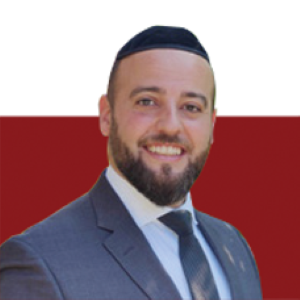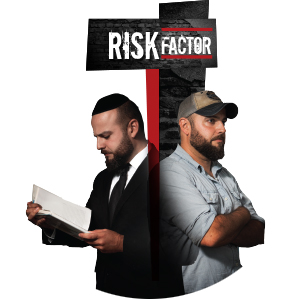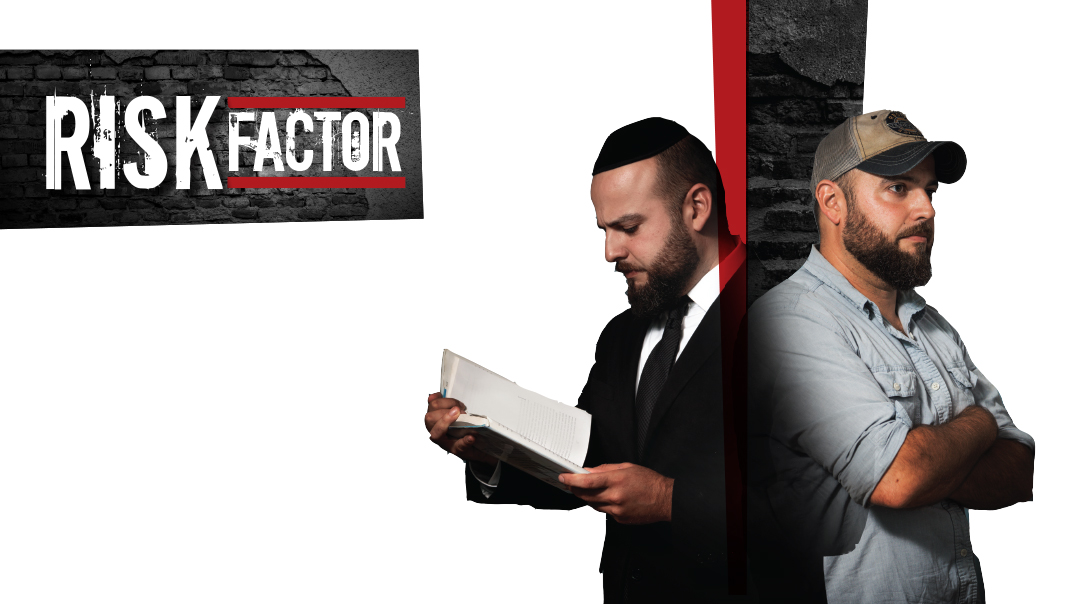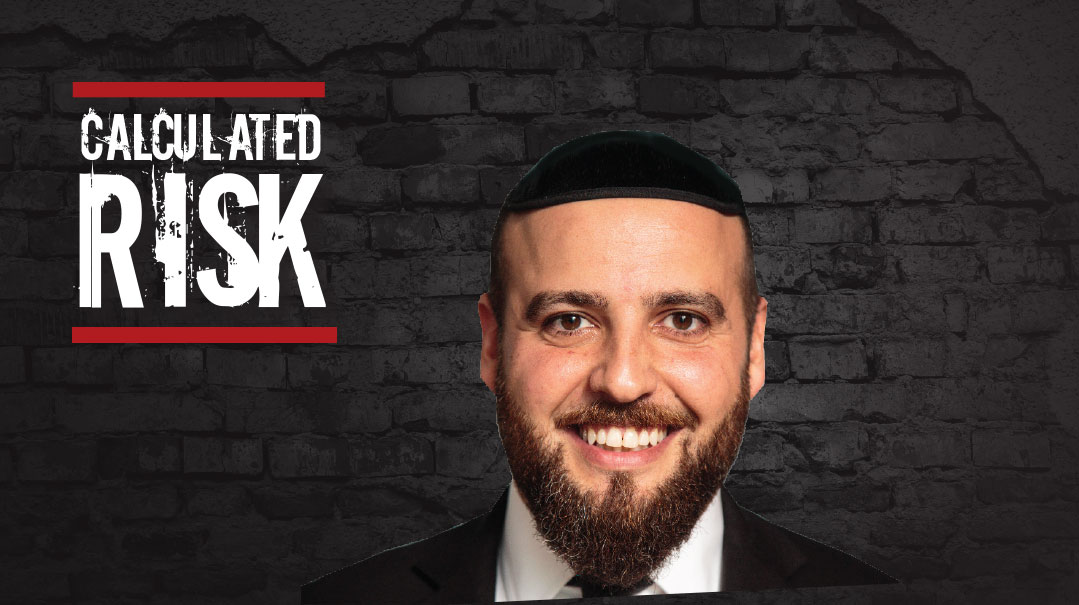The Best Man

I

was lying on the couch in my office in Yerushalayim. I had a headache from drinking too much coffee and eating too little food, but in an hour, I’d be home, and we were having hot dogs for supper. Not just any hot dogs, either — American hot dogs. The Israeli-Americans out there know that that’s something to look forward to.
Then Rabbi Shmuel Rosenberg walked into my office.
Shmuel is a close friend and one of the best drug counselors I’ve ever worked with. “You going for the chuppah or only the dancing?” he asked.
What? “Stop,” I said. “Don’t. It’s hot dog night.”
“You forgot what’s tonight!”
“Of course I didn’t forget.”
“Oh yeah? So what’s tonight?”
“Tonight?” I stalled. “Uh, tonight is Tuesday, which means… we have to go to the thing… the big…”
“Akiva Chafetz’s wedding,” he interrupted. “I can’t believe you forgot Akiva’s wedding!”
Akiva was an old student of ours whom I in particular was close with. He’d been sober for six years and was doing great. I hadn’t heard from him in about a year, but I kept tabs. He was in yeshivah and learning well. I had completely forgotten about his wedding.
“I’ll see you at the dancing, I guess,” I said.
“I can’t make it,” Shmuel replied. “I’m on call in Tel Aviv tonight. But Sruli will be there.”
I left the office shortly before six. As I turned on Rechov Shimon Hatzaddik, my phone rang. I usually ignore numbers I don’t recognize, but something made me answer this one.
“Hello?”
“Yossi?” The voice wavered. “It’s Akiva.”
I stopped walking. “Akiva?”
“Akiva Chafetz.” Now his voice cracked.
“Akiva! Ha! Rabbi Rosenberg tried tricking me into thinking your wedding was tonight!” I was grasping at straws and I knew it.
“Yossi, I can’t do it. I’m freaking out. I need something to calm me down.” He was starting to cry.
This was very bad. I could tell from his speech pattern that he was having a panic attack. I hailed a cab.
“Akiva, listen to me, it’s important. Take a deep breath,” I said.
I heard him inhale sharply and deeply.
“Again.” Another inhale, slower this time.
“One more,” I said. I gave the address to the cab driver. “Where are you?”
“In the chassan room,” he said, sounding slightly calmer. “I keep trying to calm down but every time I do my chest starts to tighten, and I feel like I’m gonna faint. I need Josh but I can’t find him. I need something to help me calm down.”
“Akiva, you don’t need anything. You got this. Just give me five minutes,” I pleaded, “I’m on my way.”
I heard him talking to someone.
“Josh is here now,” he said. “He’ll help me.”
“Josh? Josh who?”
“Josh Adams.”
No. No, no, no, no. This was bad. I remembered Josh. He was in our program for about a week before he was arrested for dealing drugs and had to leave the country. I’d lost touch with him, but the odds were he was worse off now than he had been seven years ago.
My cab driver went up Yechezkel, the worst possible route. We were stuck in standstill traffic.
“Akiva, listen to me, you need to keep breathing,” I said desperately. “Do not take anything, I’m on my way.”
“It’s okay, rebbi, Josh is here.” His voice was even lower than before. Then he said, “Thanks, rebbi, I gotta go.” He sounded distracted and hurried.
“Akiva!”
The line was dead.
I called Rabbi Rosenberg, but he was in Tel Aviv. Then I remembered Sruli. “Akiva is gonna relapse!” I blurted. “Get to the chassan room, and don’t let Josh Adams near him!”
“Josh? Really? That won’t be easy.” I knew what he meant — Josh wasn’t a pushover, and if he wanted to give Akiva drugs there wasn’t much Sruli would be able to do… aside from call the police, which no one wanted.
“Just get to Akiva before he leaves the chassan room, and put him on the phone,” I said.
I was five minutes from the hall. I felt totally helpless. Ribbono shel Olam, please, he’s been doing so well. He created a whole new life for himself. Please don’t let one sick person ruin everything he’s worked for.
My cab pulled up to the front of the hall, and I jumped out. Sruli was standing there, looking unhappy.
“He wasn’t in the chassan room,” he said. “By the time I got to him he was about to walk down the aisle.”
It was done. The only thing I could do now was damage control: Find out what he took, how much of it, and what the dangers were.
I walked into the chuppah room just in time to see the kallah walk down the aisle. Th room was quiet. Music played in the background. I looked at Akiva. His eyes were closed, and he was davening. For one moment, I allowed myself to fantasize that he had said no to Josh.
Someone grabbed my arm from behind. I turned to see a familiar face. It was Josh.
The first thing I took in was his attire. Josh was in a suit and tie, white shirt and all — a far cry from the gangster look he had sported when I last saw him. I took his arm and steered him outside. As soon as I found a quiet corner I spun around and looked him in the eye.
Wait, were those tzitzis sticking out of his jacket?
Don’t get distracted, you need to find out what he gave Akiva.
“What did you give him?” I demanded.
“What?”
“Akiva! What did you give him before the chuppah? I was on the phone with him because he wanted to use again.” I hoped Josh wouldn’t hit me. “Then you showed up, and he hung up. I’m not an idiot, Josh, he could be in danger!”
Josh relaxed a little and smiled.
“Rabbi, do you remember when Akiva decided he had a drug problem and wanted to get clean?” Josh asked. I did, vaguely. Something about him deciding to go to an NA meeting. Meeting up with a sponsor and deciding enough was enough.
“Yes, he started with meetings,” I said flatly. Nothing original there, lots of addicts start their recovery journey at meetings. “He met a good sponsor…” I stopped talking. Josh was smiling. For the first time it occurred to me that I might have called this wrong. Josh looked like he knew something I didn’t. I let go of his arm.
“I was sober for eight months already and hadn’t seen Akiva or anyone else from the program since I left,” Josh said. “And then one cold night in Toronto, there he was at one of my meetings. We talked for three hours, and he decided to try going clean. A month later he asked me to be his sponsor. He got cold feet earlier tonight, but he never thought about using. He was calling you for motivation, a pep talk on how to not freak out. He couldn’t find me and needed someone to talk him through it.”
Well, there’s making a mistake, and then there’s this. I was pretty embarrassed — but even more relieved.
In this line of work there isn’t much room for error. But you always pray to err on the side of caution. In retrospect, I still don’t think I overreacted. When you’re dealing with addicts, you have to assume the worst. I wish it wasn’t true, but it is. My mistake was that I assumed it very quickly. Too quickly.
My phone rang. Shmuel Rosenberg. “Update?”
“False alarm, baruch Hashem.”
Sruli came running out of hall. “It’s okay,” he called, “Josh is his sponsor!” He was smiling from ear to ear.
“You owe me a hot dog,” I said.
I decided to walk home. It was a long walk, but I had a lot to think about.
Identifying details have been changed to protect the privacy of patients, their families, and all other parties.
Rabbi Yossi Bensoussan serves as mashgiach ruchani at Yeshiva High School of Cleveland. He is a Certified Alcohol and Substance Abuse Counselor (CASAC) who currently maintains a private practice, and does motivational speaking and community education on addiction all over the US and Israel.
(Originally featured in Mishpacha, Issue 785)
Oops! We could not locate your form.



